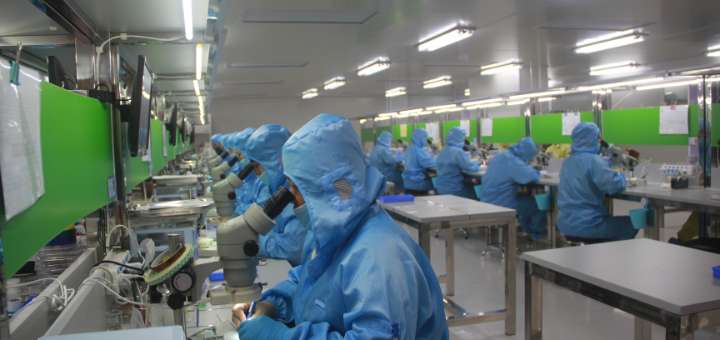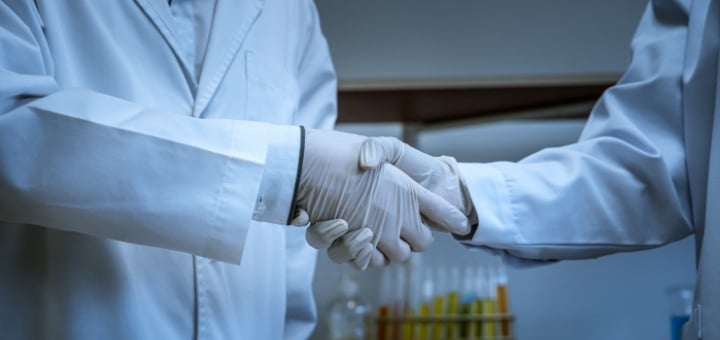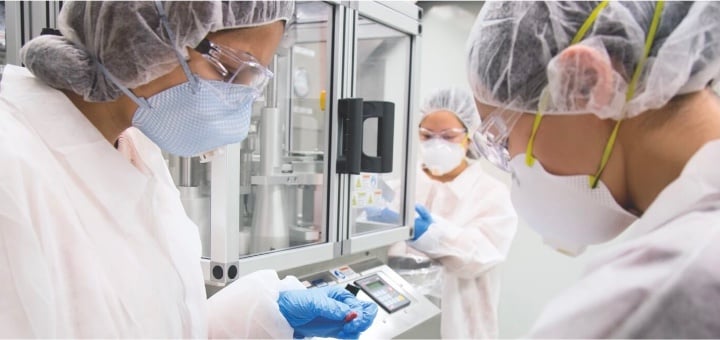What Is Tech Transfer in Pharma?
Pharma tech transfer is a critical step in any drug development program. It is used in the scale-up of a drug from pilot batch to large-scale commercial production and can occur at any development stage. Pharmaceutical tech transfer includes transferring product and process knowledge between development and manufacturing and includes moving the manufacturing scale or drug life cycle from one phase to another.
Each phase can result in:
- Changes in equipment
- Updated methods
- Optimization or redevelopment of materials
The pharmaceutical company shares proprietary knowledge and experience about their product along with details of the relevant analytical methods or manufacturing processes to a contract development and manufacturing organization (CDMO) or manufacturing company that will then produce the product at the appropriate scale for the stage of development.
Pharma Tech Transfer Applications
Pharmaceutical tech transfer is relevant for many operations but is primarily used for:
- Manufacturing product for clinical trials
- Expanding from lab-scale to a larger, commercial-scale CDMO
- Adding production capacity
- Addressing quality issues with the current CDMO
- Moving operations to another country
Pharmaceutical Technology Transfer Checklist for Choosing a CDMO
Choosing a CDMO is one of the most critical business decisions your company will make. It's a highly complex relationship because you will be sharing your intellectual property and partnering with a company that will also be creating additional intellectual property as they scale up and continue the development of your product.
Here are key considerations as you ascertain the appropriateness of your potential pharma tech transfer CDMO partner:
- 1. Timelines - Ensure that they are able to accommodate and have the capacity available to meet your timelines. Can you secure additional runs if the product demand exceeds your forecast?
- 2. Equipment - Is their equipment compatible with your current pharmaceutical manufacturing? Do they offer the flexibility to adapt as needed?
- 3. Expertise - Do they have experience in pharmaceutical tech transfer? Have they successfully worked with similar drugs?
- 4. Analytics - Not only do you want them to provide robust analytics, but you also need to ensure that you have access to their data, methodology and SOPs for both analytical and manufacturing if you transfer pharmaceutical manufacturing production.
- 5. Regulatory Excellence - It's imperative that your CDMO has expertise regarding the necessary regulations and can meet all clinical regulatory requirements. In addition, they also should be equipped to provide guidance on your behalf.
- 6. Reputation - Responsiveness, effective communication and rapport are essential for both establishing and maintaining a successful long-term relationship.

Pharmaceutical Technology Transfer Checklist
When evaluating your TT partner, this pharmaceutical technology transfer checklist will help forge a successful plan. Your pharma tech transfer partner should provide:
- Pharmaceutical Tech Transfer Protocol
This should include: - What will be transferred
- Necessary steps
- Group responsibilities
- Expected outcomes
- Detailed Analytical Methods
Analytical methods are the foundation of successful technology transfer and one of the first elements of a manufacturing process to be transferred because the results are used for comparability assessments. - Manufacturing Process Description
Ensure the manufacturing process is described in explicit detail. - Critical Process Parameters (CPPs)
CPPs are monitored or regulated for quality control purposes. - Critical Quality Attributes (CQAs)
Per ICH Q8(R2), these are a "physical, chemical, biological, or microbiological property or characteristic that should be within an appropriate limit, range, or distribution to ensure the desired product quality." They can be associated with: - Drug Components
- Excipients
- Intermediates (in-process materials)
- Final Drug products
- Technical gap analysis
This risk assessment document addresses the known and potential gaps between the donor and receiving sites' capabilities. It should include an evaluation of the level of preparedness for the transfer. Do they have adequate staffing or the appropriate equipment in place? - Change control management system
Flexibility and responsiveness are key. Any adjustments to the pharmaceutical manufacturing process or equipment used must be documented.
Tech Transfer Best Practices
A pharma tech transfer should be executed in stages with documented evidence that each step is complete before the next one starts.
- 1. Start with a successful small-scale batch.
- 2. Ensure there are acceptable results.
- 3. Move on to an engineering batch at the intended manufacturing scale.
Familiarization runs should always be performed and documented before validation runs begin.
After a successful technology transfer, document everything. Be sure to include evidence that the CDMO can continue to routinely reproduce the product as described in the technology transfer plan. In addition, perform a comparability assessment to confirm the technology transfer success.
A successful pharma tech transfer requires diligent planning, precise documentation, proper procedures and the experienced experts at UPM to guide your firm, so that you can avoid the pitfalls associated with the process.
Whether you are a small start-up or a well-established biopharma company, tech transfer is the key to your drug's success and speed to market.
Our Pharma Tech Transfer Team
Our integrative pharmaceutical tech transfer group includes industry experts in R&D, production, engineering, quality control, risk assessment and regulatory affairs.
We offer a full range of commercial pharmaceutical manufacturing services, including:
You can rely on the expertise of UPM for a successful pharma tech transfer and your long-term manufacturing needs.
CONTACT US
To learn more about UPM's pharma tech transfer capabilities and tech transfer best practices, contact us online or speak to a partner by calling (423) 989-8000.
Let's Talk
